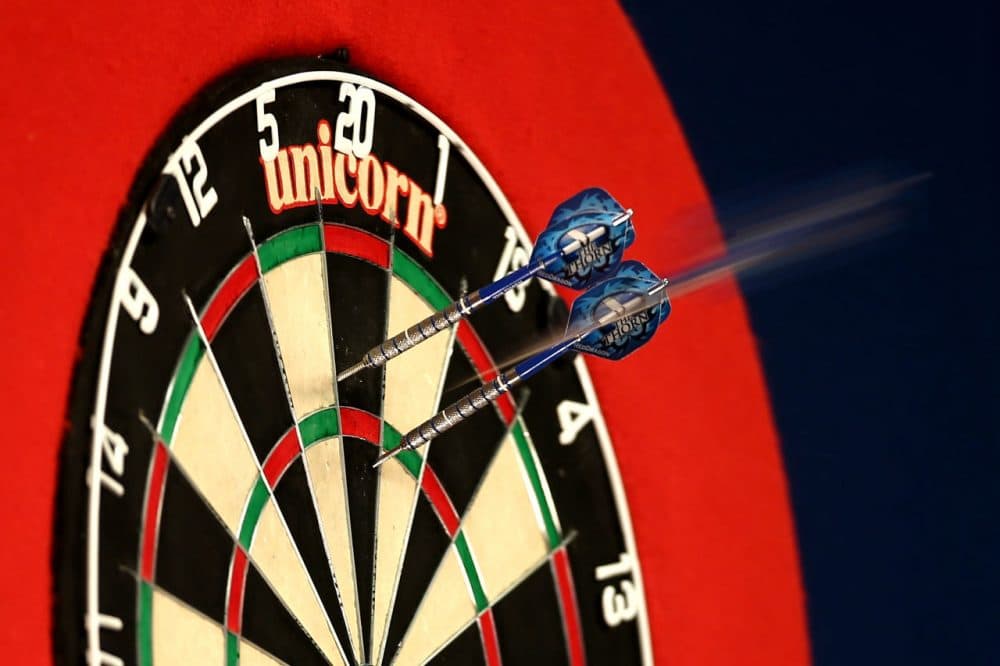Advertisement
Darts Study Proves The Power Of Rivalries
Resume
This story is part of Only A Game’s “Rivalry Show,” which looked at stories of rivalries in sports.
Tim Rees is a researcher and teacher at the University of Exeter in the U.K. He also works with athletes to help them perform better.
For a 2012 study, Tim Rees and his colleagues arranged for some of Exeter's most accomplished athletes to throw darts at a board...while blindfolded.
The most improved performers of all were those who initially received the negative feedback from the out-group – the rival – and then received positive feedback from the in-group.
Tim Rees, University of Exeter
Then Professor Rees arranged for people to lie to the athletes about how well they’d performed; that is, the athletes were told they’d done badly, no matter where their darts had landed.
"Yeah, it’s quite a downer for them, actually," Rees said. "So they might even have scored 30. So, they got three right in the middle, in the bullseye, but we would still say to them, 'You only scored six.'"
Rees did that "because they haven’t seen how they scored. They turn to us. We show them on a leader board which has got another load of false numbers in there, and we say 'So, you scored six.' And that six is right next to a band that says 'Failure.'"
The leader board, featuring fictitious names and numbers, is meant to convince the actual athletes that lots of people have been more accurate with their darts.
"And then we start to try to manipulate how they feel about that failure," Rees explained.
What Professor Rees and his colleagues have found is that if dart-throwers from the University of Exeter are told by somebody else from the University of Exeter that they have failed and it’s out of their control and they won’t perform better "they really take it to heart badly and their motivation seems to drop"
But what if the discouraging words come from a rival? Happily, Exeter has one: the University of Loughborough.
"Loughborough traditionally win most or the majority of the sporting events in the U.K. Exeter are close. It's a tough rivalry. Good-natured, but it's fierce."
Professor Rees says there’s no reason to believe this phenomenon is limited to darts. The more general and generalizable point of his research is that by conveying negative messages to a rival – aka, trash-talking, "You may end up inadvertently making them play better, because they actively try to resist your message and prove you wrong. You run the risk of basically helping to fuel the fire in your opponent that will make them come back and beat you."
Think about that the next time you’re tempted to loudly insult the opposing team’s hitter, who hasn’t had a homerun in six months…or the enemy basketball player who’s lousy at free throws. Or, even the next time you criticize a co-worker right before the weekly staff meeting. You may inadvertently be increasing the chances your rival will succeed.
More From Only A Game's Rivalry Show
- Surfers vs. S.U.P.ers: The Battle For The Waves
- Inside South American Soccer Rivalries
- Throwing It Down On The Hardwood And The Diamond
This segment aired on June 27, 2015.
